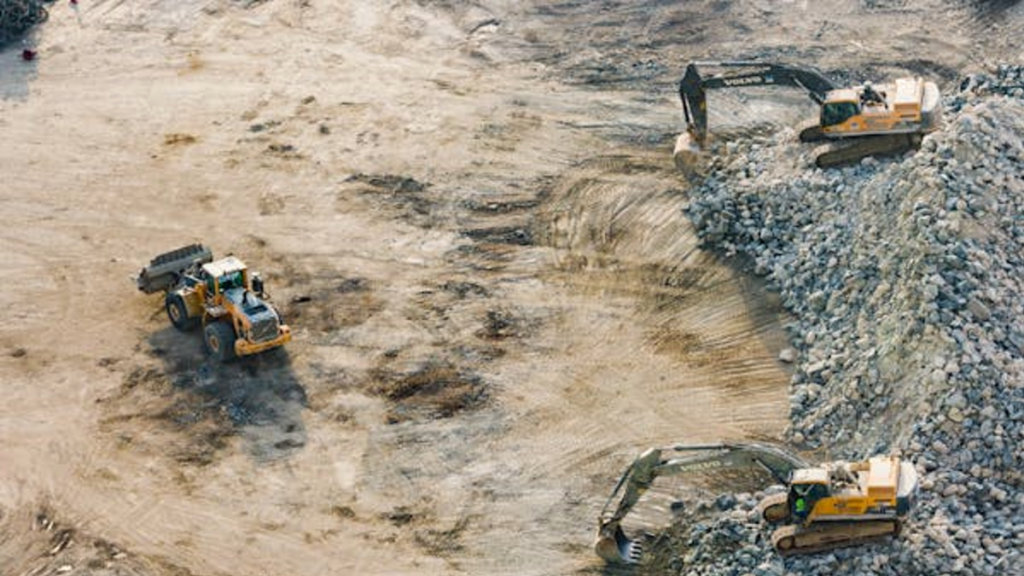Are you considering a new build on your residential or commercial property? If this is the first building you’re adding to the property, Australian law will require you to conduct a series of soil tests before being issued the necessary permits.
Planning to add a new building or structure to your newly acquired land can be exciting and challenging. Property owners will be required to work with a range of different contractors and engineers to obtain the necessary building permits. A few key aspects that will have undoubtedly made it to you list are a range of geotechnical services.
Whether your new build will be a simple pool in the backyard or you’re planning a new office on your commercial property, you will need the soil testing Melbourne construction companies rely on. What are geotechnical services, and why will you need them?
What are Geotechnical Services?
Geotechnical services are defined as the specialised assessments and studies that test the soil and geological conditions of a site that has been earmarked for construction. Simply put, these tests determine whether or not the soil is safe to build on.
Soil tests are designed to help contractors, builders, and engineers make the right decisions about building techniques and materials to create and maintain drainage and stability under their structures.
In many instances, these tests are required by Australian law before necessary building permits will be issued. These tests are conducted by companies offering geotechnical services. The most common services on offer from reputable geotechnical companies include the following:
- Soil testing and Site Classification Reports
- Full Geotechnical Site Investigations
- Basement investigations
- Footing Probes
- Land Capability Assessments (LCA)
- Geotechnical drilling
- Bushfire Attack Levels (BAL)
- Wind Load Ratings (WLR)
Knowing What Services You Need is Crucial
There’s no way you will be issued the necessary permits you need without the necessary geotechnical services. To help you assess what you need, we’ve listed the most common ones to consider.
1. Soil Testing
The number one test that any new build will require is a soil test. This is because each site has unique soil and geological properties. Soil in the location of your proposed building site should be tested to highlight potential problems such as landslides, soil liquefaction or settling.
Soil tests also assess the soil’s bearing capacity to determine whether a stable and durable foundation is possible. Soil that doesn’t drain well can lead to severe foundation problems later on and may also hamper the actual construction process.
Tests that show poor soil quality will help engineers choose different materials to counteract the issue. An example of this is opting to use cement resistant to sulfur if the soil already contains high levels of sulfur.
Soil testing is usually done for the following developments:
- New Houses
- Extensions to Existing Dwellings
- Upper Story Extensions
- Units or Dual Occupancy Projects
- Townhouse and Unit Developments
- Subdivisions
- Pools
- Garages or Sheds
- Decks
2. Slope Stability Investigations
For the most part, slope stability investigations are done to assess the risk of landslides or potential slope failures in the region. This is essential in areas where buildings are going to be set up on or near slopes. During these tests, groundwater, rock and soil conditions are tested and reviewed for building conditions.
Here’s how it works:
- Review background information, including geological maps and past landslip records.
- Inspect the site for visible signs of instability, such as site geomorphology, cracks, bulging, tilting trees, or evidence of previous landslip or slope instability.
- Establish components such as soil type, slope gradient, drainage, and groundwater conditions.
- Perform geotechnical drilling onsite to required depths using specialised testing and drilling equipment.
- Testing is done to a depth in the range of 5-10m, depending on access, soil types and conditions.
- Landslip risk assessment
Areas that have a risky outcome will see engineers suggesting techniques such as the following:
- Retaining walls
- Drainage systems
- Ground reinforcement to boost ground stability
3. Saturated Hydraulic Conductivity Report
Saturated hydraulic conductivity reports are done to assess how water flows through saturated soil. With these tests, the overall goal is to determine whether or not the soil will be able to absorb rainfall in severe storm conditions. Hydraulic conductivity measures how easily water flows through soil once it’s fully saturated. Essentially, this will help engineers design the most stable drainage system.
Soil with a saturated conductivity will allow water to flow through the ground faster. When this happens, there’s less surface runoff and the risk of flooding is greatly reduced. Soils with low conductivity may lead to poor drainage, causing water to pool or require additional infrastructure to manage.
Final Thoughts
Any residential or commercial property owners should enlist a geotechnical service provider. They will then advise you of the tests needed for your specific build. Your building team will then be able to implement the right building and construction techniques to ensure your building project leaves you with a safe structure.

